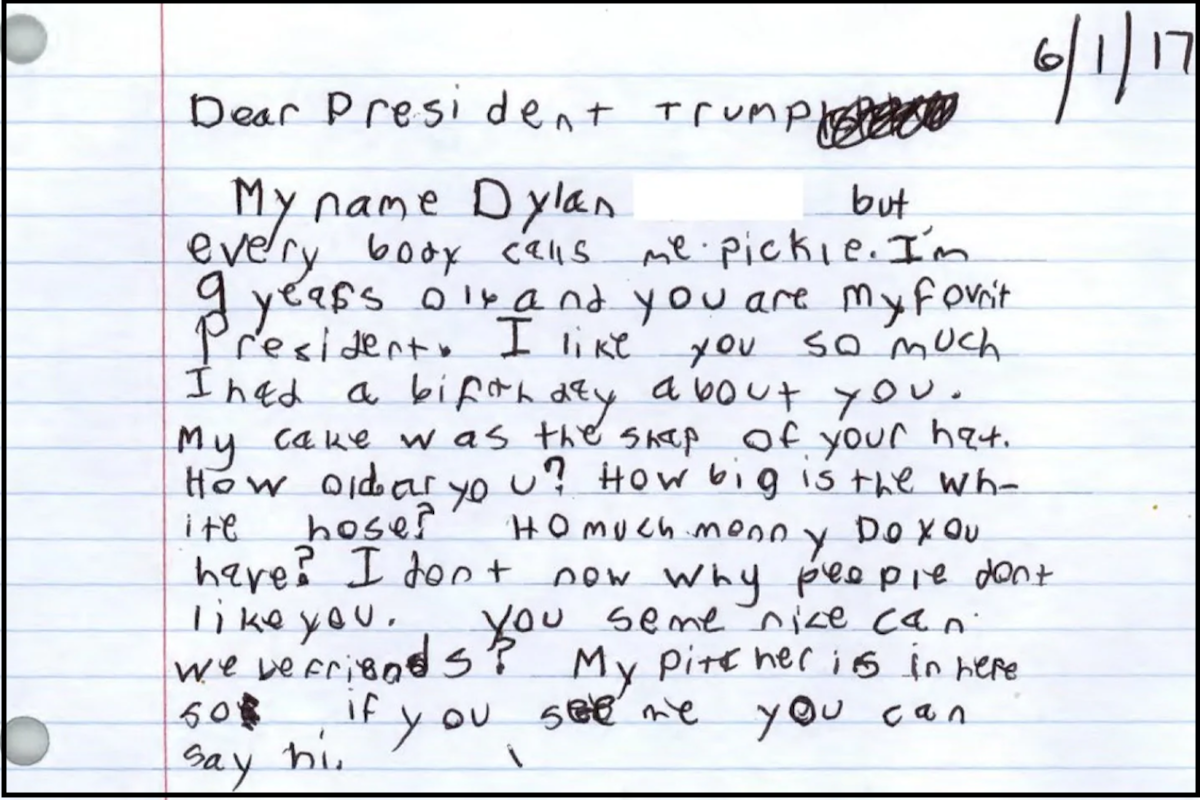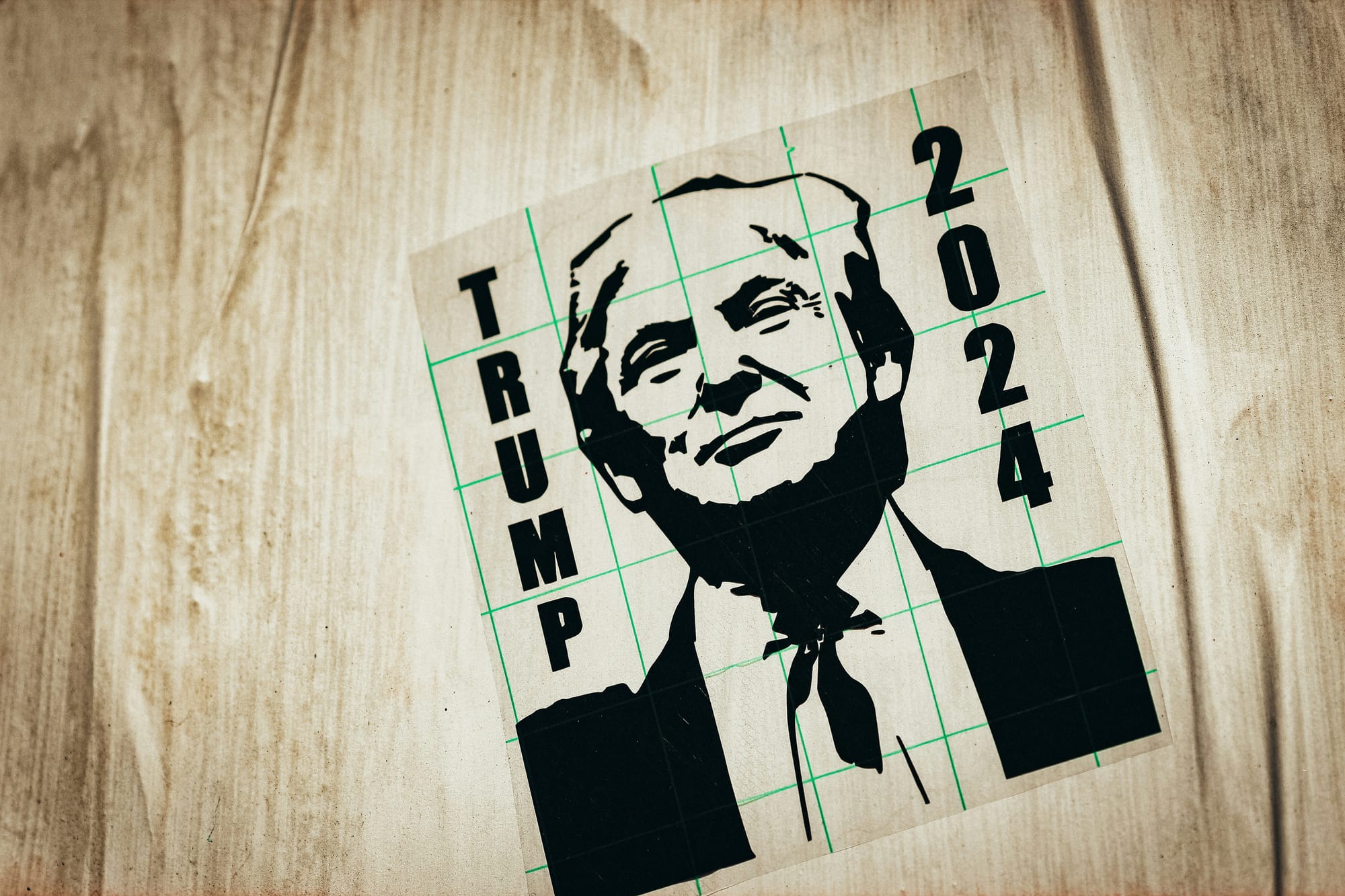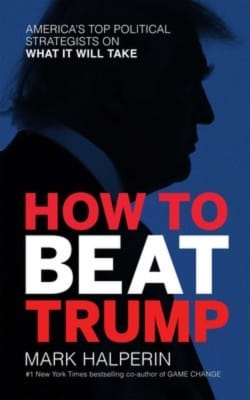recent
The Simple Secret of Trump's Supreme Political Confidence: Old-Fashioned Fan Mail
The CPAC crowd loved Trump’s message—not his theatrics or his celebrity, but his message—and the fervent reaction to him far out-stripped that of every other speaker, including the many White House hopefuls who sought the GOP nomination in 2012.

Donald Trump knows how to demonize the privileged and other targeted segments of the electorate as a means to connect with the masses. The phrase “connect with the masses” has an elitist ring, but it describes his reach as well as his fan base. His years hosting The Apprentice made him a TV star; millions welcomed him into their homes every week and never retracted the invitation. It also characterizes Trump’s approach; the accessible appeal of a man who, despite his billions and iconic brand, can craft instant intimacy with 10,000 people in an arena, and multitudes more over the airwaves.
Trump flirted with a presidential bid over the years, teasing and threatening to run for the office, boasting to reporters and the public that he was certain to win if he did, while privately acknowledging the dizzying implausibility of finding success in the unfamiliar arena of politics.
Yet when he finally leaped into the race in 2015, it was no surprise to him that he met a warm reception—not from the press or the Republican Party, but from the citizens who attended his rallies. His events started out large, and became gargantuan. At first, fans who kept dog-eared copies of The Art of the Deal on the family bookshelf, or who watched Trump on The Apprentice every week, came out to see the famous businessperson. They were accompanied by the curious and the bored. Then the energy changed, and the venues expanded. “It’s a movement, folks,” Trump told his crowds triumphantly, and he was right.
Perhaps Trump had not predicted how smoothly he would ascend to the nomination, nor how swiftly he would dispatch his Republican rivals, but he had been convinced his people would show up in droves to join his movement. Part of his confidence came from a fingertip feel for the populist mood of the country, gleaned from his massive media consumption and his rollicking, bring-the-house-down speeches at events such as the annual Conservative Political Action Conference, or CPAC, a gathering of conservative activists from around the country. But part of his confidence came from the binders.
In the spring of 2011, I was invited to visit Trump Tower and meet with its eponymous owner. The billionaire had spoken at CPAC that February, and I was present to cover the meeting. A number of well-known conservatives and would-be presidential candidates appeared at the event. But when Trump took the stage, the room was packed to the gills with avid listeners, many of them young. The speech Trump gave— vilifying Beltway elites, career politicians, China, Mexico and illegal immigrants—would become familiar to cable news and YouTube viewers five years later. But in that ballroom on that day, Trump shook the rafters and planted the seeds of his historic White House victory.
It is not difficult to gauge the potency of a political presentation by the intensity of the audience response, but the excitement Trump aroused was exceptional. The CPAC crowd loved Trump’s message—not his theatrics or his celebrity, but his message—and the fervent reaction to him far out-stripped that of every other speaker, including the many White House hopefuls who sought the GOP nomination in 2012. Soon after Trump’s CPAC event, I appeared on television and made those points. I did not in any way endorse Trump’s remarks, of course, but merely conveyed the force and power of his display. I said that if Trump chose to enter the Republican presidential nomination fight, his potential should not be underestimated.
Trump was watching the television segment. One sure thing about Donald Trump back then, which is still true to this day: If you said something favorable about him on television, he would call you on the telephone and tell you how smart you are. He phoned me up, thanked me for my comments on his CPAC speech, and invited me to come by Trump Tower and have a little talk about politics. Trump had been a fixture in business, pop culture, the gossip rags and the modern American psyche since my youth. And for all his cartoonish swank, he was a fascinating figure. Now he was making waves in the world of politics. I accepted.
I arrived at Trump Tower on time, was ushered into his office suite on the twenty-sixth floor, and was told Trump was running behind schedule. Before I settled in to wait, his top in-house political aide scooped me up and led me to his own small office to discuss the viability of a 2012 Trump presidential campaign.

That aide was Michael Cohen, Trump’s personal lawyer and fixer, who later became caught up in Robert Mueller’s wide-ranging investigation into possible collusion between the Russian government and the 2016 Trump campaign. Cohen publicly broke with his long-time boss, confessed to Mueller, and in December 2018, was sentenced to three years in federal prison after pleading guilty to crimes including campaign finance violations and tax evasion, a “veritable smorgasbord of fraudulent conduct,” according to the judge who sentenced him.
At the time of my visit to Trump Tower in 2011, Cohen was the main public face and point of contact for an exploration into a Trump presidential bid, as his boss taped episodes of The Apprentice, marketed his brand, dallied with real-estate deals, and dipped his toes in and out of the political waters of Iowa, New Hampshire and beyond. Cohen gabbled about “Mr. Trump” with a breathless reverence that was almost laughable, as if the mogul were some combination of Solomon, Hercules and Elvis Presley.
I had spoken to Cohen on occasion over the previous few years and was prepared for the song-and-dance boosterism I heard that afternoon: that Mr. Trump was in demand all over the country to give political speeches and share his thoughts on the issues of the day. That Republican Party officials in Iowa and New Hampshire were begging him to run. That the reaction to Mr. Trump’s every appearance and event was electric, revolutionary.
Trump and Cohen are very different men, but at the time they were identical in one respect: the ardor with which they could discuss the brains, talents, and general splendor of Donald J. Trump. One tends to absorb such hyperbole with more than a touch of skepticism. I listened with patience and reserve. Then Cohen brought out the binders.
They were filled with letters. Dozens, scores, hundreds of letters. Cohen told me heaps of letters arrived in the mail every day, sent by strangers from all over the country, and that Trump’s secretarial team collected, sorted and organized them into binders. Some were handwritten; some included checks, or five- or ten-dollar bills, or small mementos. All beseeched Trump to run for president.
Cohen flipped through the pages of plastic-encased correspondence, reading aloud from particularly heartwarming, impassioned or resonant missives. You HAVE to run…America needs you…My children’s future depends on it…The career politicians will never fix our problems. Cohen’s face was alight with devotion, urgency, pride. Idly, I wondered if the letters were genuine. Perhaps they had been generated by a team of underpaid foreign workers; or by the Trump Organization administrative staff; or by Cohen himself, laboring as if over an elementary-school art project, with floral stationery, scratch pads, postcards, inkwells, ballpoint pens and typewriters from eBay set out before him.
But the language in these letters was genuine, the words evocative. Many of the letters echoed the message Trump had delivered at CPAC and other venues. There were citizens all over the country, a significant portion of the electorate, who were struggling, grievously unhappy and afraid. They were in trouble, and they thought America was in trouble, too. They had seen this man on television, this man who had so much confidence and so many glib answers, and they wanted him to go to Washington and set things right.
When politicians are deliberating over joining a presidential race, it is common for them to boast that a diverse array of Americans is encouraging them to run. While there is often truth to this claim, the appeals usually come from staff, close friends and loyal donors who have offered regular support over the years.
Cohen’s binders of letters, the outpouring of promises and pleas, were perhaps unprecedented in modern times. The people who wrote to Trump nearly a decade ago would be disappointed when he announced in May, 2011 that he would not be entering the 2012 presidential race. “This decision does not come easily or without regret,” said Trump in a statement, “especially when my potential candidacy continues to be validated by ranking at the top of the Republican contenders in polls across the country. I maintain the strong conviction that if I were to run, I would be able to win the primary and ultimately, the general election.”
Four years later, those binders of letters, I believe, helped inspire Trump to make his victorious bid for the White House. They served as more than an ego stroke, more than the typical fan blandishments dashed off to a reality TV star. They were a tangible sign that the people were waiting for him. Despite the media mockery, despite the dubious mutterings and nervous sneers from the Republican Party, the letters in those binders were the start of something bigger than a campaign. They were the start of a movement.

Excerpted from How to Beat Trump: America’s Top Political Minds on What It Will Take, by Mark Halperin. Copyright 2019 by Mark Halperin. Reprinted with permission from Regan Arts. All rights reserved.






